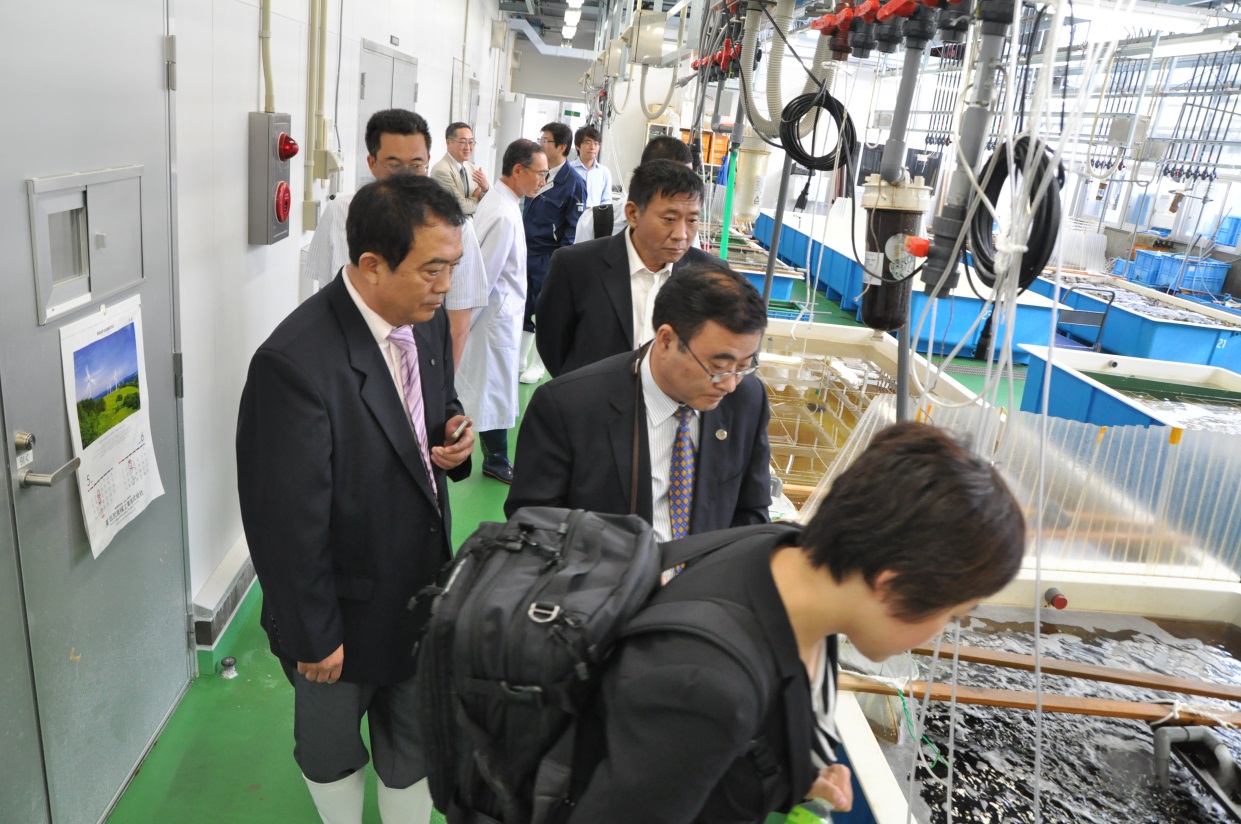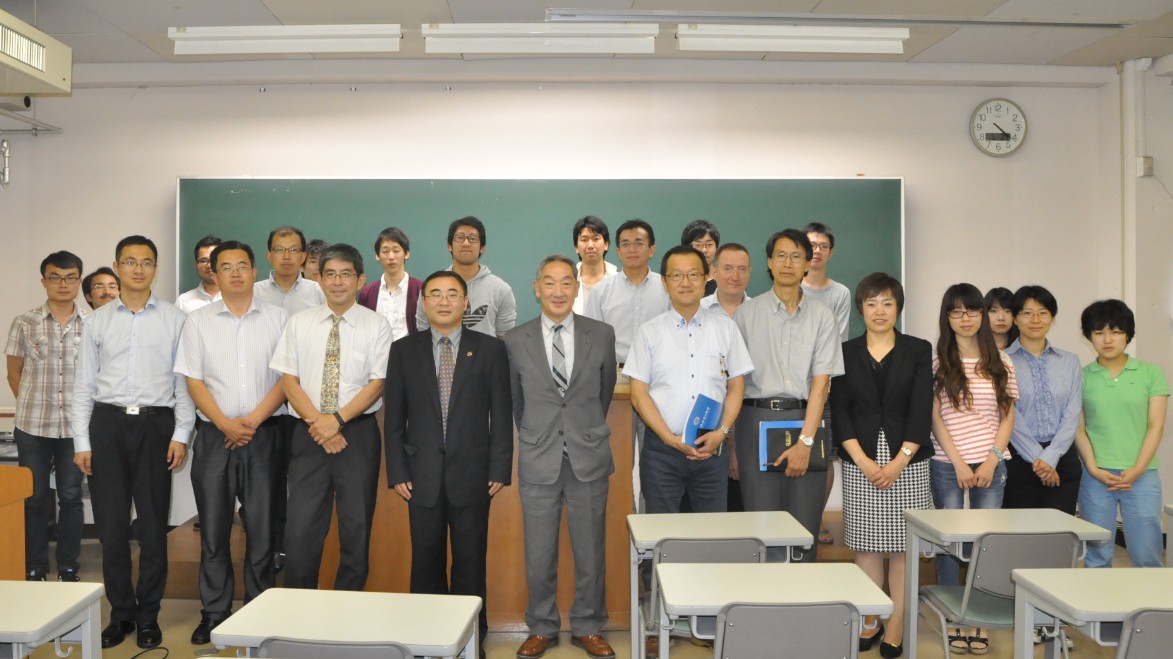July 7, 2013, the investigatory group to Japan led by Dr. Yang Hongsheng completed its 7 days’ academic exchange on marine ranching and sea cucumber aquaculture techniques. The group includes Dr. Li Jingyu from the Ocean University of China, Dr. Zhang Tao, Dr. Xu Qiang and Dr. Zhang Libin from IOCAS.
Japan is playing an advanced role in the world in the field of coastal seaweed bed remediation, marine ranching construction and bio-resource stocking enhancement. However, our knowledge regarding to these fields are still insufficient. The purpose of this visiting is to study and exchange the experiences and philosophies of Japanese marine ranching construction, and also investigate current status of Japanese sea cucumber industries and the processing technics of fishery products. The investigatory group visited four departments located at Sapporo and Sendai successively, which are the central Hokkaido fisheries institute and mariculture fisheries research institute belonging to Hokkaido Research Organization, the Graduate School of Agricultural Science of Tohoku University and the Yamato Company.
Japanese researchers presented the studies on the degradation mechanism and reconstruction technics of seaweed bed, the sea cucumber stocking enhancement and deep processing technics of fishery products. Dr. Yang successively made special reports about principles, facilities and technics of sea cucumber Apostichopus japonicus aquaculture in China. The investigatory group also discussed with Japanese scholars in mutual interested topics. The investigatory group also visited advanced indoor aquarium facilities and automatic salmon classification flow line and deep processing factory of cooked seafood.
Through this visit, the investigatory group understood the researching status and technological level of marine ranching construction, bio-resources remediation, and sea cucumber stocking enhancement and fishery products deep processing in Japan. The knowledge from this visit provided new thoughts for further researches in China. Meanwhile, this visit promotes the understanding of the current developing status in the research fields of both sides, which consolidated the basis for further collaboration of the two countries.



